Overview of the types of depression

Each person at some period of his life falls into despondency, sadness and gives in to gloomy reflections. A persistent decrease in mood, general depression, indifference to events, loss of appetite, insomnia, distraction and other symptoms can signal the development of depression.
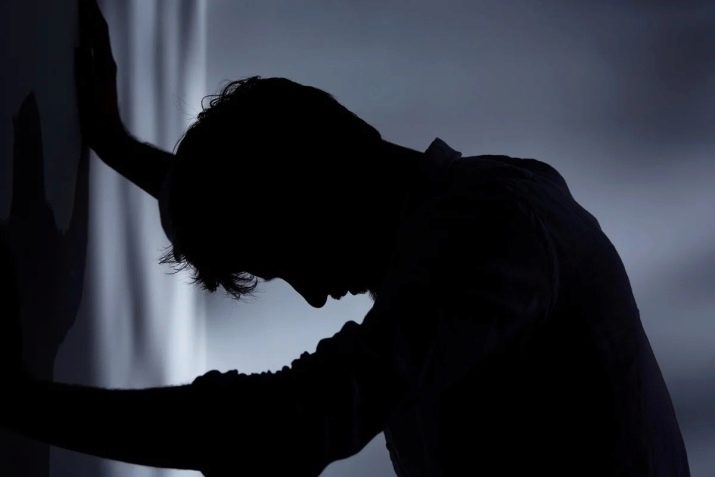
Types according to severity
Some types of depression can be confused with other neurotic conditions, so a person experiencing emotional and physical disorders must seek the advice of a psychologist or psychiatrist. Depending on the type of depression and the number of symptoms, experts determine the level of the patient's psychological state.
The disease can occur in mild, moderate (clinical) and severe forms.
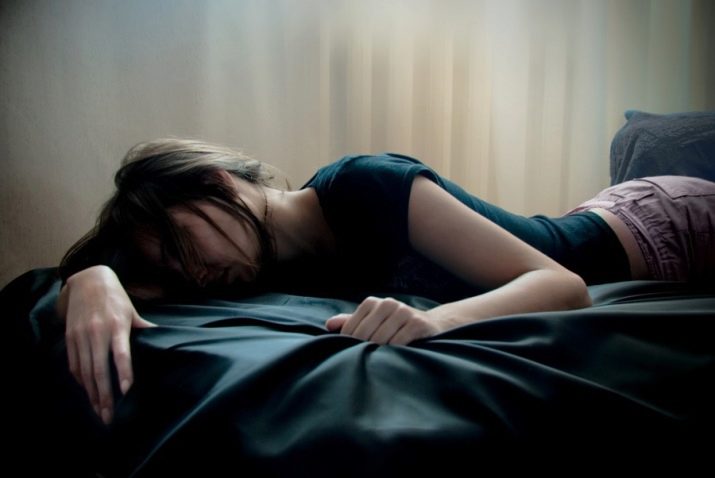
Easy
Subject easily copes with incipient ailment on its own. Mild depression is usually invisible to an outsider. The individual is able to control his thoughts and actions. He easily switches from negative reflections to optimistic ones. Mild symptoms of mild disease do not significantly affect the subject's daily life.
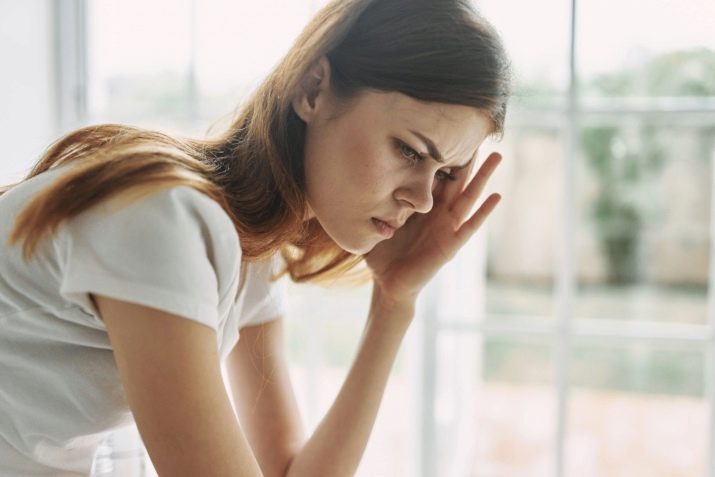
The person continues to do their usual things, copes well with their family and professional responsibilities. But at the same time he feels mental and physical emptiness. Most often, the patient attributes his depression to overwork and severe fatigue, therefore, he does not always turn to a specialist for help in a timely manner. Sometimes the depressive disorder goes away on its own over time.For some, the use of herbal preparations is enough to stabilize the psychological state.
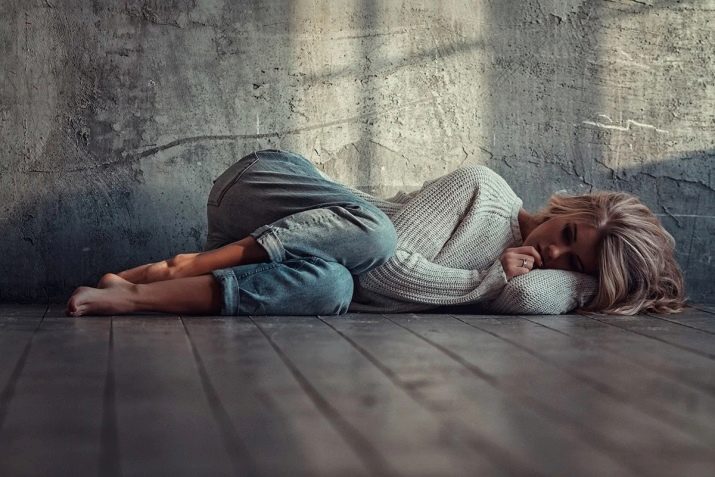
Clinical
A moderate degree of depressive disorder is characterized by a deeper withdrawal of the personality into their experiences. A person periodically cries because of dark thoughts visiting him. He loses sleep, reacts sharply to various provocative situations. The patient's labor productivity gradually decreases. Moderate depression is noticeable to those around you.
Severe depression of moderate severity is usually eliminated at home by normalizing sleep, isolation from external stimuli: it is necessary to turn off the bright light, not listen to loud music and take noisy children out of the room. Sometimes sedatives are recommended for patients.
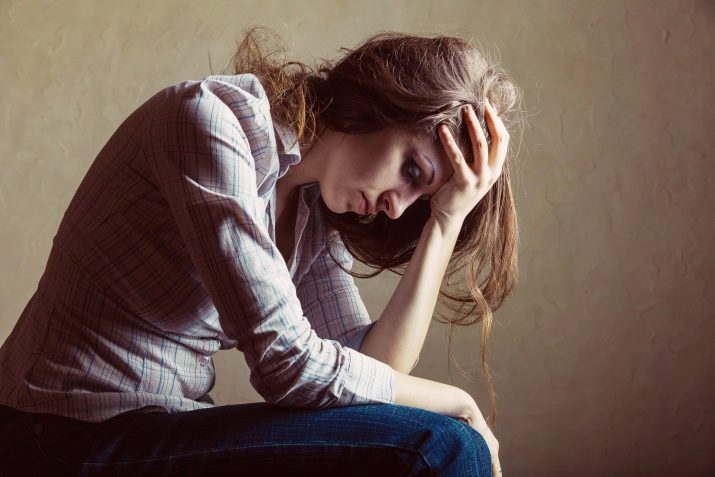
When an individual reaches the clinical phase, he completely loses interest in life. Decreased mood, indifference to the outside world, gloomy reflections lead a person to limit social contacts. A person hardly fulfills his official duties. The individual cannot take care of his own person, he brings himself to complete exhaustion.
Subject may lie in bed all day without eating or talking. He loses the ability to experience positive emotions, feels a sense of fear and guilt. Usually, the disease proceeds without the manifestation of signs of neurosis or mental disorders.

Clinical depression can be recognized by three characteristics: excessive depression, lethargy, and low physical activity. A person needs outside help. Without it, he could starve to death. In this case, it is impossible to do without drug therapy.
Heavy
A high degree of emotional and physical distress requires serious medical treatment. Usually, an individual suffering from a severe form of depression displays outbursts of unjustified aggression and hysteria. He is characterized by various neurotic symptoms and psychosis. As a result, the psyche exhausts all its resources for self-healing. The subject may attempt to commit suicide. A person with hysterical neurosis only threatens or imitates suicide, while a depressed person can actually commit suicide. A severe degree of depression is treated only in stationary conditions. Severe depression, severe, requires the immediate intervention of a psychiatrist.

The disease can become chronic. In this case, the depressed state lasts more than 2 years. A depressed person does not want to contact relatives and friends, does not maintain cleanliness and order in the apartment, does not devote due time to his professional duties. In women, the menstrual cycle is usually lost.
Age classification
No one is immune from the occurrence of depression. She can overtake the subject at any period of life. Depending on the age category of people, the process of the course of a depressive disorder and the causes of the onset of the disease can have significant differences.
-
Depression in children often appears as a result of a powerful emotional shock caused by the death of a loved one, divorce of parents or change of place of residence. Sometimes affective disorder provokes increased parental control, excessive custody, or, conversely, maternal and paternal indifference to the child's success. Some children are under constant stress due to the inability to build normal relationships in the team. Depressed babies experience outbursts of anger, pugnacity, sleep disturbances, fear of falling asleep alone, decreased appetite, refusal to communicate, and loss of previously learned skills. Up to 3 years of age, the depressive state is pathological. It occurs due to intrauterine abnormalities or asphyxia that arose during labor.
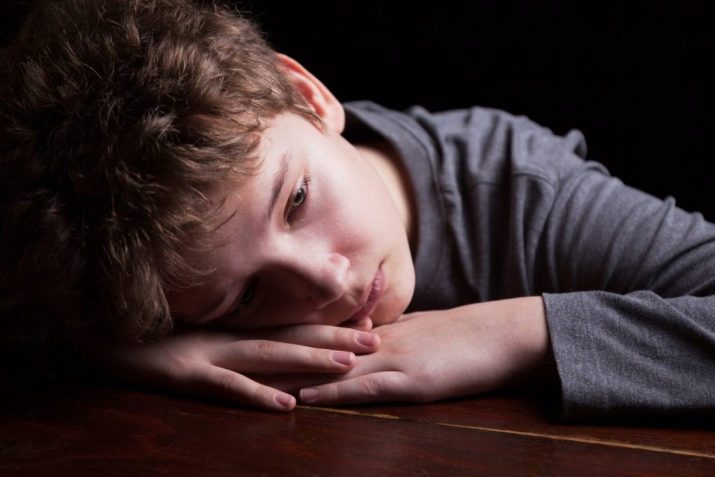
- Teenage depression characterized by frequent outbursts of anger and aggressive attacks aimed at the close environment. A teenager does not tolerate criticism in his own address, enters into conflicts with everyone, therefore his circle of communication changes often. It seems to adolescents that they are not loved and understood by their own people. Between the ages of 12 and 18, many neglect any responsibilities and start skipping classes. Most teenagers are not interested in studying. Many people notice increased fatigue and decreased alertness. They are tormented by headaches and an unreasonable fear of death. Some become addicted to the use of drugs and alcoholic beverages. Parents often attribute the condition of a grown-up child to character traits and do not try to help him. In fact, hormonal changes take place in a teenager's body. A person begins to rethink his role in society. Against the background of a kind of rebellion against parents and social order, the child may stop contacting people and become depressed. Depression is dangerous for the health and life of a teenager. The teenager can harm himself and even commit suicide.
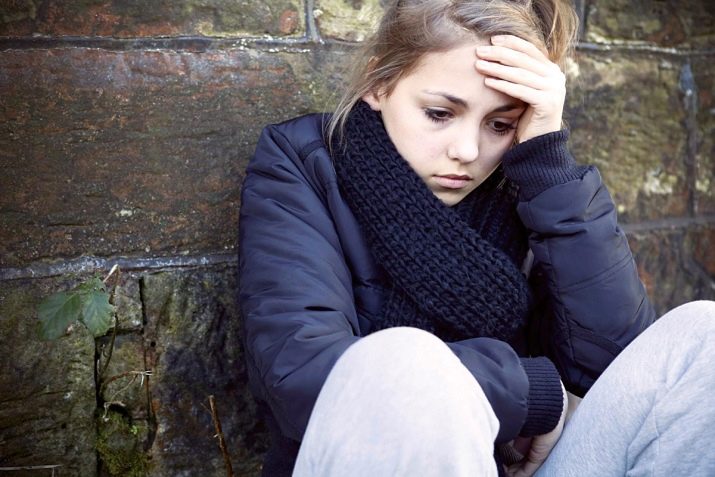
- Middle age crisis overtakes a person at about 30-40 years old. During this life period, the subject feels the unattainability of many goals and his helplessness in front of the world around him. He is often haunted by thoughts about the futility of the efforts being made. The mood deteriorates greatly, the level of depression and apathy increases.

- Depression in the elderly most often occurs after retirement. It is protracted. A person begins to understand that his life path is approaching the final phase. Against the background of physical ailments and the awareness of the approaching death, there is a feeling of their uselessness and hopelessness, an irretrievable loss of time. Subject experiences mental retardation, loss of activity, and chronic fatigue. In old age, the disease can manifest itself in the form of a decrease in cognitive skills. An elderly person has weakened memory, concentration, and involvement in communication. As a result, the person loses interest in life. Depression develops gradually.
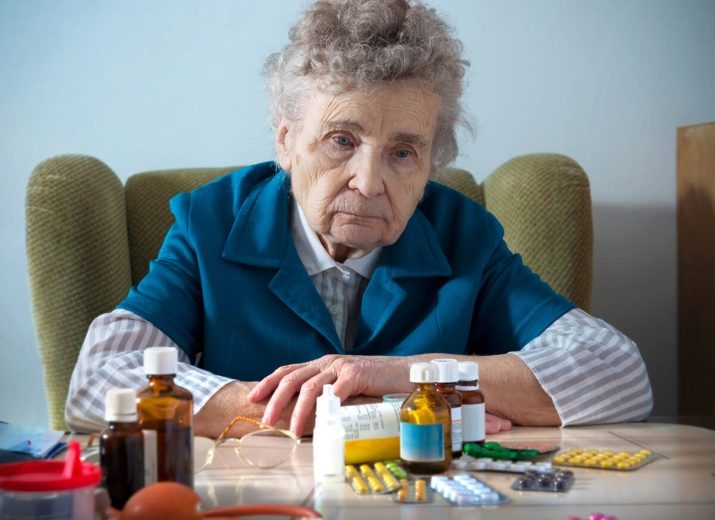
Types in psychiatry
Many people who are depressed require mental health care. Specialists describe several types of depressive disorders.
Endogenous (deep) depression occurs with various disorders of the nervous system. Physical illness can also be the cause. The development of the disease occurs against the background of a decrease in the level of hormones that normalize brain activity. Disruption of neural connections leads to a failure of mental balance and contributes to the depression of the emotional state. People suffering from this type of depressive disorder lose interest in life, do not want to make contact with others. They are characterized by complete apathy. Some people refuse to eat food, so their weight is reduced. In most patients, a slow response to external stimuli and unchanged facial expressions are observed, and sleep is disturbed.
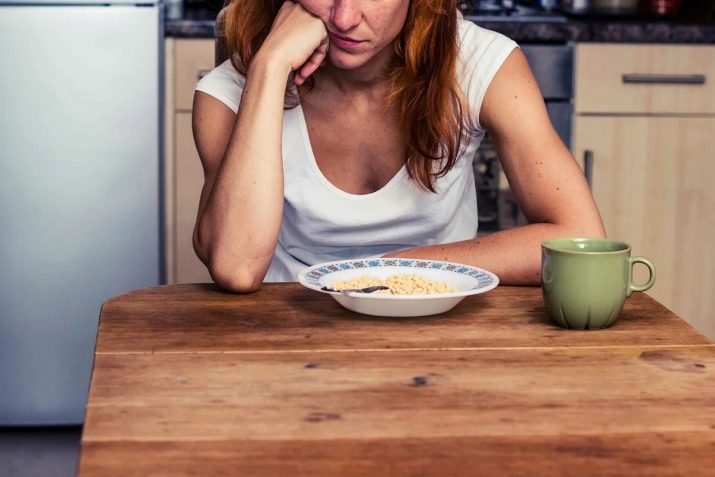
Unlike endogenous depression, which can occur for no apparent reason, the exogenous type manifests itself as a result of a traumatic situation. This classic pathological condition is also called psychogenic and reactive depressive disorder. It arises as a reaction to an event that caused mental pain: the death of a loved one, dismissal from work, rape, conflict in relationships, divorce. Subject feels depressed, sad, and unwilling to communicate. He keeps within himself all his experiences.

Reactive depression develops a few days after a severe psychological shock. During this period, the individual may not even be aware that he needs the help of a specialist. The habitual way of life is disrupted.The patient feels indifference to the events taking place. He becomes an uncommunicative and withdrawn person.
Psychogenic depression is common in many people. Individuals with a strong will and a stable psyche can cope on their own with a stressful situation. After 2-3 weeks, they manage to get out of the depression.
A subject prone to fixation on failure requires the help of a psychologist or psychiatrist.

The following signs indicate a hereditary predisposition to mental disorders: low mood, unreasonable sadness, phobias, mania, and visual hallucinations. A person does not want to spend time with other people, because he is completely indifferent to them. A depressed and detached state interferes with the subject's ability to study and work well. It is difficult for him to make new acquaintances. Any contacts are quickly lost. Psychotic depressive disorder often leads a person to suicidal thoughts. In this case, the intervention of a psychiatrist is necessary.

A neurotic condition is characteristic of people suffering from excellent student's syndrome. A suspicious and anxious person is straightforward, demanding and prone to self-criticism. The following symptoms are inherent in him: the desire to perform all his actions ideally, long-term experience of any failures, refusal of repeated attempts. The patient, being at a dead end, cannot cope with the difficult situation that has arisen. Depression often develops against the background of neurosis. The person has problems with digestion. He often experiences headaches and general weakness. The subject quickly gets tired in the absence of physical activity, strongly depends on the opinions of others, avoids conflict situations, seeks to take a neutral position in debates.

Mild illness can be eliminated with soothing herbal infusions. The protracted process is not complete without the use of drugs.
The masked variety is often disguised as a medical condition. Sometimes the ailment is accompanied by pain or sexual dysfunction. The patient attributes his depression and physical decrease in activity to some kind of illness. Often the patient's suspiciousness leads to despondency and hypochondria. Subject becomes suspicious of various incurable diseases. He is fixated on his own physical health. Patients have panic attacks, attacks of gratuitous anxiety and irritable bowel syndrome. In these cases, psychiatrists prescribe antidepressants to patients. Similar depressive conditions occur in women with menstrual irregularities.

In atypical depressive disorder, along with apathy and depression, there is increased excitability. Subject is actively gesticulating, shifting from foot to foot, constantly tapping. He cannot control his emotions. A person is prone to moodiness and tearfulness.
Sometimes the individual suffers from seizures and painful spasms, the cause of which cannot be found out on examination. Panic attacks, causing suffocation, as well as anxiety attacks, sudden mood swings do not allow an individual to work normally and do everyday life, and lead a social life.
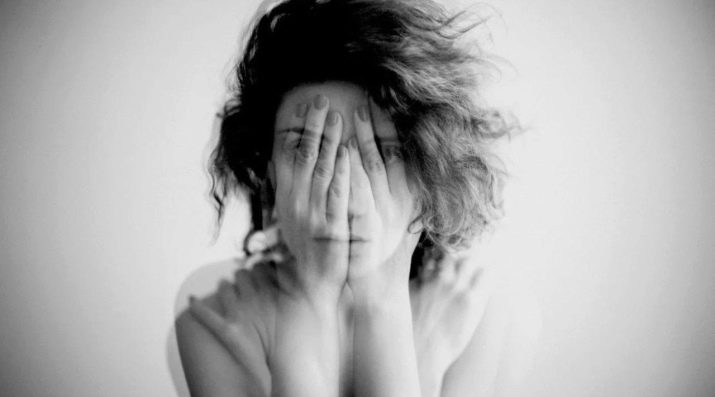
Bipolar disorder has two phases: apathy and mania. A person cannot control his actions. He inadequately perceives various events, looks at any danger with indifference. The main feature of this type of depression is a sharp change in mood. Apathy and decreased activity can change dramatically to hyperactivity and euphoria. Refusal of any communication, loss of interest in their hobbies unexpectedly ends with the patient trying to conduct stormy conversations with different people, doing his favorite things, laughing loudly, cannot stay in one place.A person with bipolar disorder has unnatural manifestations of excessive cheerfulness, activity, and cheerfulness. The condition lasts for a short time.

The disease can be recognized by some of the symptoms. The patient is often capricious, intractable, depressed. Hallucinations, bouts of delirium, rapid mood swings, and unmotivated aggression are often observed. The disease is treated for a long time and is difficult. Bipolar disorder has frequent relapses. Such people need to be under the supervision of a psychiatrist and receive medication.
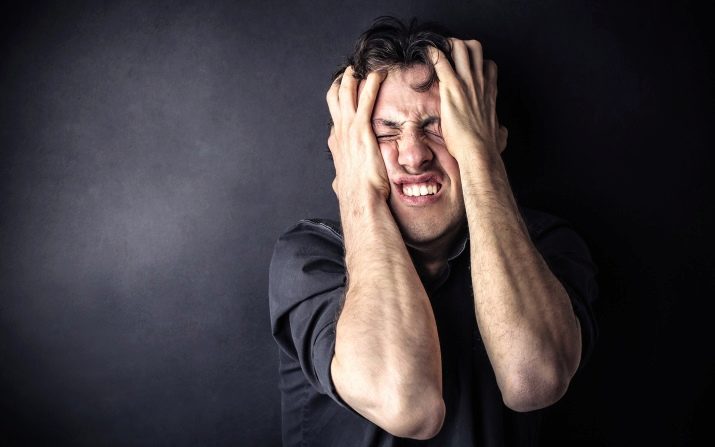
One of the most severe forms of emotional distress is depressive stupor. The patient does not want to communicate with anyone, refuses to eat, is in one position all the time. This condition is typical for people who have experienced an attack of schizophrenia.
What happens in psychology?
Psychologists note 3 stages of perception by the subject himself of a depressive disorder.
- The rejection stage is characterized by denial of the problem. A person blames ordinary fatigue for the appearance of depression and depression. On the one hand, the sick person wants to interrupt any communication with others, on the other hand, it is scary for a depressed person to remain completely alone.
- The second stage is characterized by acceptance of the situation. Subject is aware of the depressive state and becomes severely frightened. He is overcome by gloomy thoughts. The person loses appetite and sleep. The body's immune system malfunctions.
- The final stage of destruction occurs in the absence of qualified assistance. The individual loses control over himself, shows aggression. He begins to break down as a person.

Psychologists do not undertake the correction of complex psychiatric pathologies. They can help a person at an early stage of the disease. For example, a former alcoholic and drug addict wants to return to a sober lifestyle. A psychologist can choose a suitable technique and help a person only if there are minor personality changes. People who have been using drugs and alcohol for a long time require psychiatric help.

Postpartum depression occurs against the background of hormonal surges in a woman's body. A young mother is limited in communication and free time. She is faced with unfamiliar responsibilities. As a result, her way of life changes dramatically, and her responsibility increases. The woman feels mental discomfort. Psychological overload brings a woman to nervous exhaustion and breakdowns. The psychologist explains to young parents their new role and helps to determine the individual area of responsibility of each of them for different situations.

Seasonal (circular) depression occurs in the fall or winter. At this time, the length of daylight hours decreases, the air temperature decreases. The person restricts their stay in the fresh air. Being in a closed space with artificial lighting can plunge into despondency and drive into melancholy even the most cheerful person. Fall / winter depression is evidenced by frequent mood swings, irritability, and drowsiness. Patients are visited by thoughts about the hopelessness of life and their own worthlessness.
Psychologists also help people who are depressed due to job loss, change of place of residence, a sharp decline in social status and other traumatic events.









